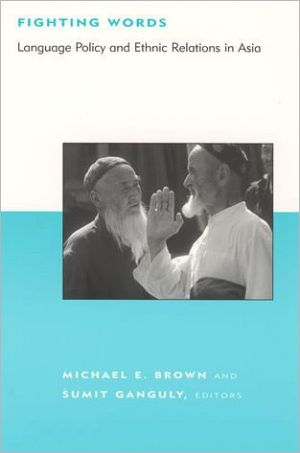Fighting Words: Language Policy and Ethnic Relations in Asia (BCSIA Studies in International Security) (Belfer Center Studies in International Security)
Ganguly, Sumit
Language policy is a sensitive issue in most countries. In countries where more than one language is spoken--the vast majority of countries--language policies affect the ability of individuals and groups to participate in government, to be treated fairly by governmental agencies, to have access to government services, to take advantage of educational opportunities, and to pursue economic success.
Language policies also affect the prospects for survival of ethnic groups that define themselves on the basis of language. Assimilationist policies can threaten the existence of minority groups as distinct entities. Accommodationist policies might allow many ethnic groups to flourish but weaken national unity. In many countries, disputes over language policies have led to ethnic tensions and, in some cases, to violent ethnic conflicts.
This book analyzes the impact of different kinds of language policies on ethnic relations in fifteen multiethnic countries in Asia and the Pacific. The analyses include discussion of the origins of different language policies and of how the policies have evolved over time. The book develops policy recommendations, both for individual countries and in more general terms.
Linguistics & Semiotics, Ethnic & Race Relations, Public Affairs & Policies
| Name in long format: | Fighting Words: Language Policy and Ethnic Relations in Asia (BCSIA Studies in International Security) (Belfer Center Studies in International Security) |
|---|---|
| ISBN-10: | 0262025353 |
| ISBN-13: | 9780262025355 |
| Book pages: | 400 |
| Book language: | en |
| Edition: | First Edition |
| Binding: | Hardcover |
| Publisher: | The MIT Press |
| Dimensions: | Height: 9.25 Inches, Length: 6.125 Inches, Weight: 1.8408598877 pounds, Width: 1.25 Inches |


















